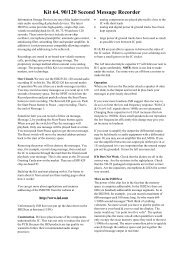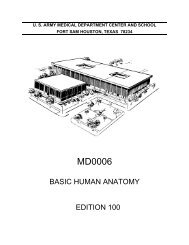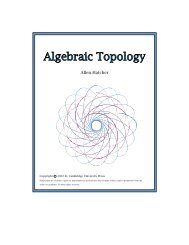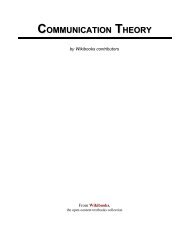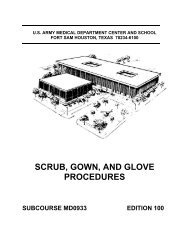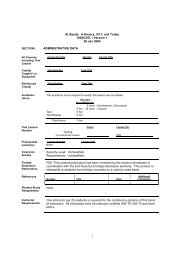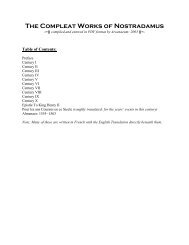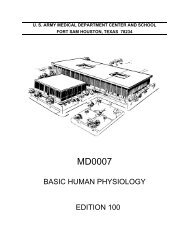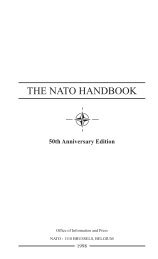Download This File - The Free Information Society
Download This File - The Free Information Society
Download This File - The Free Information Society
You also want an ePaper? Increase the reach of your titles
YUMPU automatically turns print PDFs into web optimized ePapers that Google loves.
.<br />
nation of Mexican law enforcement and DEA agents began to<br />
pay off. Between October 31 and November 11, 1998, more than<br />
300 million dollars worth of luxurious water front properties,<br />
yachts, jet skis, boats, cars and motorcycles were seized by the<br />
Mexican Government. In addition, over 115 arrests and/or<br />
indictments took place during the course of this investigation.<br />
eral law enforcement between the Governments of<br />
Mexico and the United States.<br />
Less than a month later on June 12, 2001, Alcides Ramon was<br />
arrested by elements of the Mexican military in Villahermosa,<br />
Tabasco, Mexico. <strong>The</strong> two bosses of Cancun, Ramon and<br />
Villanueva, remained in custody at the maximum-security prison<br />
“La Palma” in Almoloya, Mexico, as of early 2003.<br />
Caribbean<br />
Initiative/UNICORN<br />
<strong>The</strong> transit of illegal drugs throughout the Caribbean created<br />
unique challenges to law enforcement. One of those<br />
was an intelligence void about trafficking organizations operating<br />
out of the region and a lack of cooperation among<br />
law enforcement agencies. As a result, DEA’s Caribbean<br />
Field Division created the UNICORN system (Unified Caribbean<br />
On-Line Regional Network) in 1998 to establish a communications<br />
network among Caribbean law enforcement agencies<br />
to share information and establish better cooperation<br />
and communication regarding drug trafficking activity in the<br />
area. <strong>This</strong> operation was the first step in developing a systematic<br />
regional strategy in narcotics investigations. Operation<br />
UNICORN led to the development of Regional Intelligence<br />
Centers throughout Mexico, Colombia, and the Dominican<br />
Republic. <strong>This</strong> concept and the global exchange of<br />
information eventually spread to 36 countries, including<br />
those in Eastern and Western Europe. Using the groundwork<br />
laid in UNICORN, at least four major drug trafficking<br />
organizations targeted by the international law enforcement<br />
community were dismantled.<br />
<strong>The</strong> first operation to employ the UNICORN system was<br />
Operation Genesis, a bi-national initiative to foster and maintain<br />
cooperation between Haiti and the Dominican Republic.<br />
Conducted in late 1998, Genesis resulted in 126 arrests<br />
throughout Haiti and the Dominican Republic. Prior to this,<br />
these two countries had never before coordinated their antidrug<br />
efforts. DEA assisted the exchange of information<br />
through the UNICORN system.<br />
49<br />
Operations Conquistador<br />
and Colombus<br />
Operation Conquistador and its preceding operation,<br />
Colombus, both used UNICORN to facilitate the exchange of<br />
information among counterdrug agencies in the Caribbean<br />
area and source countries. Conquistador combined the efforts<br />
of 26 countries and embodied the overall objective of<br />
developing effective regional strategies to disrupt drug trafficking<br />
organizations and criminal organizations. Executed<br />
by the DEA’s Caribbean Field Division with assistance from<br />
the U.S. Coast Guard and ATF in March 2000, the operation<br />
resulted in the arrest of over 2,000 people and the seizure of<br />
almost 5,000 kilograms of cocaine, 362 metric tons of marijuana,<br />
and 3,370 dosage units of dangerous drugs.<br />
Operation Colombus, was a multi-national regional enforcement<br />
effort focused on air, land and maritime interdiction;<br />
eradication; and airstrip denial. <strong>The</strong> operation, targeting the<br />
operations of Caribbean-based drug trafficking groups, had<br />
unprecedented arrest and seizure statistics for the region.<br />
Involving Colombia, Venezuela, Panama and the island nations<br />
of the Caribbean, the investigation brought about over<br />
1,000 arrests and the seizure of 900 kilograms of cocaine and<br />
nine kilograms of heroin.<br />
A press conference of recent maritime seizure where 15<br />
countries, DEA, U.S. Coast Guard and U.S. Customs participated.<br />
Operation UNICORN led to the development of Regional Intelligence<br />
Centers throughout Mexico, Colombia, and the<br />
Dominican Republic. <strong>This</strong> concept and the global exchange<br />
of information eventually spread to 36 countries, including<br />
those in Eastern and Western Europe. Using the groundwork<br />
laid in UNICORN, at least four major drug trafficking organizations<br />
targeted by the international law enforcement community<br />
were dismantled.



